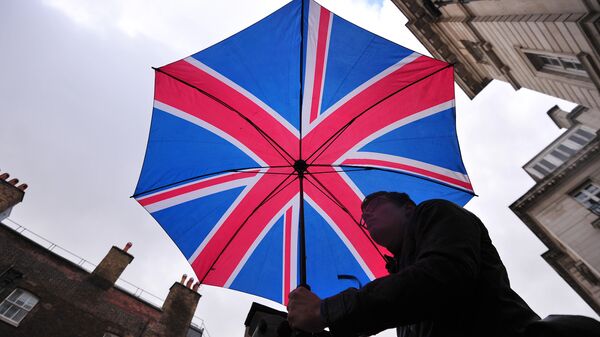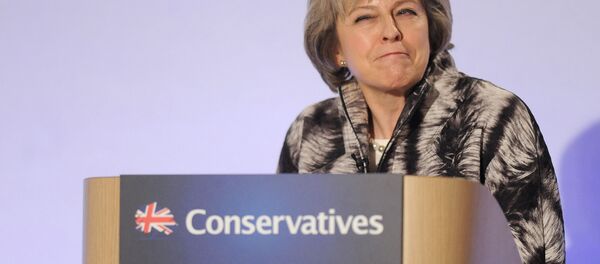WASHINGTON (Sputnik) — On Tuesday, an ICM poll revealed that UK nationals support exiting the European Union by a 46 to 44 percent margin, which comes less than a month ahead of a June 23 referendum on the country’s membership in the European Union.
"As we get closer to ‘D’ day in June, people are getting nervous," George Washington University European Union Research Center Director Scheherazade Rehman told Sputnik. "What has pushed this [Brexit] towards being a real scenario… is the immigration crisis."
The EU’s refugee problem, Rehman noted, is the "fear factor" driving support for Brexit, regardless of other economic or political considerations.
"Any EU proposal is calling for some kind of equity or sharing of the immigration burden, and the Brits are having none of it."
UK citizens might vote to leave the EU to avoid the burden sharing involved with housing anywhere from 20,000 to 100,000 immigrants, Rehman suggested.
In addition, she argued, the immigration flow into Europe is not stemming itself and will become a "lifelong problem" for the European Union and its member states.
Rehman doubts, however, that the United Kingdom will exit the European Union because it would be a "death sentence" to Britain’s business community, given that manufacturers and businesses have tax-free access to goods and services and movement of people in and out of the EU.
Former East Timor President Jose Ramos-Horta said in an op-ed published in The Huffington Post on Tuesday that EU politicians have paid a high political price for welcoming immigrants amid fears driven by the refugee crisis.
"Many in favor of a Brexit are using the refugee crisis as a scarecrow," Ramos-Horta stated in the article, which he co-authored with three other activists.
Last week, US President Barack Obama warned that the United Kingdom would lose influence if it were to leave the EU, and suggested that it could take up to ten years to negotiate new trade deals with the United States.
Prime Minister David Cameron and the leaders of the 27 other EU member states reached a deal in February to grant the United Kingdom a special status within the bloc.



